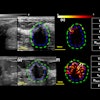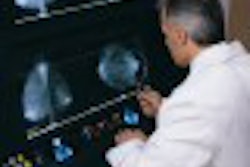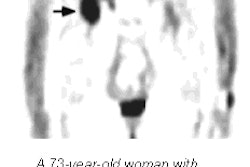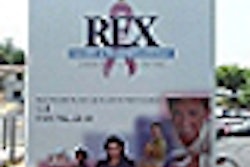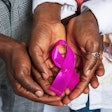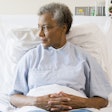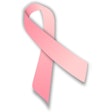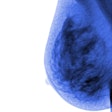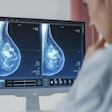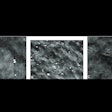The world's most controversial breast cancer researchers have apparently outdone themselves. Put aside for a moment the Danish Cochrane group's reiteration last week that screening mammography doesn't increase survival rates. This year's report has generated consternation for another reason: A review of the report that appeared in The Lancet includes information that differs from what was actually published by the Cochrane Centre.
Why? The answer lies in good old internal politics. While Danish researchers Dr. Peter Gøtzsche and Ole Olsen stand by their assessment that there is no evidence that mammography saves lives, the Cochrane Breast Cancer Group that reviewed their research disagreed with this conclusion. As a result, the actual report -- available only by subscription from the Cochrane Centre -- includes language from the governing group that takes issue with Gøtzsche and Olsen’s work.
As it appears in The Lancet, the summary is a reanalysis -- and reiteration -- of a controversial study by the duo last year. Their meta-analysis of eight studies, including the Gothenburg Breast Cancer Screening and Two-County trials in Sweden, claimed to find that because of faulty randomization methods, most of the trials do not support the efficacy of mammography for reducing mortality.
This second time around, Gøtzsche and Olsen reexamined those same trials and reached the same conclusion. But the abridged version in The Lancet does not contain the Cochrane Breast Cancer Group’s dissension.
"[The authors] have actually cheated The Lancet by not revealing this important statement," commented Dr. László Tabár in an e-mail to AuntMinnie.com. "The [full] review will clearly state that screening decreases mortality." Tabár, who is at the department of mammography at Falun Central Hospital in Sweden, was the lead author of an article in Cancer that found that mortality from incident breast carcinoma diagnosed in women ages 40-69 declined significantly with mammographic screening (Cancer, May 2001, Vol.91:9, pp. 1724-1731).
The Danish team won the endorsement of Dr. Peter Horton, editor of The Lancet. In an accompanying editorial, Horton said that, based on the current report, "there is no reliable evidence from large randomized trials to support screening mammography programs."
Horton’s stance has raised the ire of those who fear the abbreviated summary will be taken as the full Cochrane review.
"I do not agree with the conclusions of Gøtzsche and Olsen, who have turned an exercise in meta-analysis into a personal crusade and appear to have lost their scientific objectivity," said Dr. Peter Dean, president of the Radiological Society of Finland. "They have been unable to accept the peer-review process of the Cochrane [Breast Cancer Group] misleading people into believing that [The Lancet article] is a true Cochrane review."
Insinuations have been made that, because the information was summarized in a "fast-tracked" research letter, Gøtzsche and Olsen’s work did not have to undergo the same peer-review process as other studies published in The Lancet. However, according to The Lancet’s guideline for authors, "all those published are peer reviewed, with separate statistical review where appropriate."
Some mammographers have chosen to reserve passing judgment on Gøtzsche and Olsen’s work until they’ve had an opportunity to look at the actual report -- not just the summary in The Lancet -- but others have wasted no time in refuting the Cochrane research.
"The overwhelming weight of scientific evidence supports regular screening with mammography as the best strategy to detect breast cancer early and thus begin treatment early," said Robert Smith, Ph.D, director of cancer screening for the American Cancer Society.
As Breast Cancer Awareness Month draws to a close, what effect has this information had on the general public? None, so far. As of Monday, the majority of breast cancer advocacy groups had yet to pick up on the story.
By Shalmali PalAuntMinnie.com staff writer
October 23, 2001
Related Reading
Reassessment confirms: Screening mammography has no survival benefit, October 19, 2001
Most women overestimate the efficacy of mammography, October 19, 2001
Swedish trials reiterate mammography’s effectiveness for most women, May 8, 2001
Danish mammo study reviewed: right questions, wrong answers, January 17, 2000
American Cancer Society blasts Danish mammography study, January 10, 2000
Copyright © 2001 AuntMinnie.com



